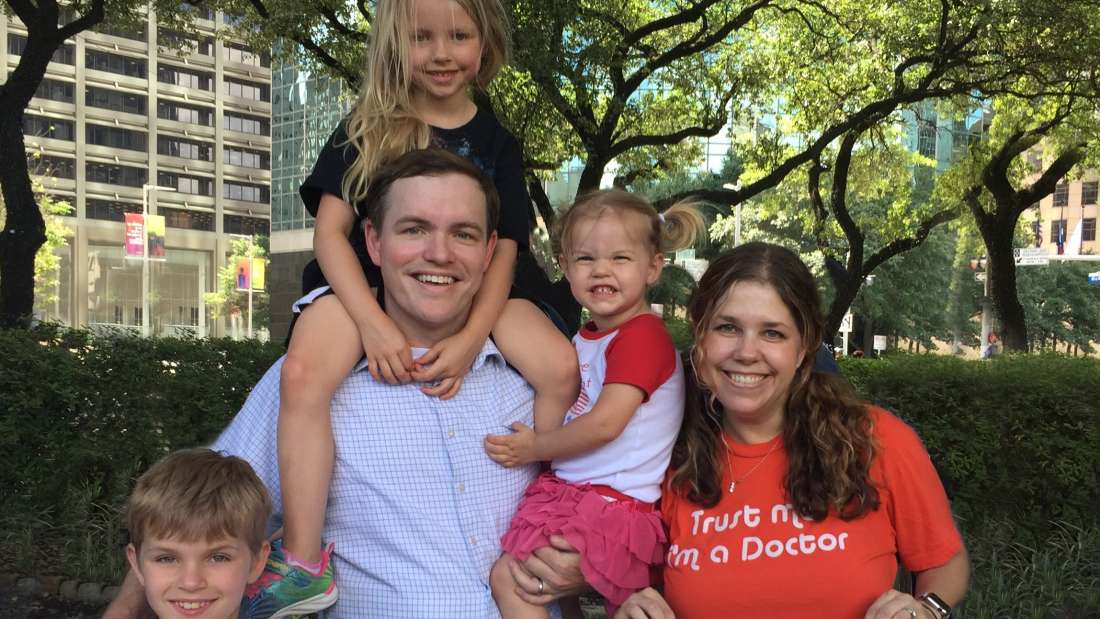By: Robin Andrews/IFLScience “We have to ask the question: Why did we need a science march in 2017?”
“We don’t have marches to say we love our families, or that puppies are good,” Jason Westin, an award-winning cancer researcher, tells IFLScience. “These subjects are self-evident – but something has changed in the country.
“We’re going through a period of time where logic and reason are getting turned upside down,” he says. “Things that should be self-evident suddenly aren’t.”
The passage of the American Health Care Act (AHCA) through the House a few weeks back prompted outrage from a vast swath of the American people. Insurers, lawmakers, patients, the working class, the middle class, and plenty of medical professionals – including the nation’s crème of the crop – derided it as being hugely detrimental to the health of the United States.
Westin, one such expert, told IFLScience at the time that “this bill would make America sicker.” Far from being a voice of protest, however, he’s one of the scientists that, with the help of 314 Action, are running for Congress.
Gearing up for a fight in Texas’ 7th district for the upcoming midterms, he took some time to explain to us why he needs to force change through the halls of power – and why science has no choice but to push back against the Trump administration.

We put it to Westin that, considering all that science and research has achieved, it’s absurd that he is even running for office on a pro-science ticket in the first place. “I would not dispute that fact,” he shoots back.
“This is not a decision made on a whim; it was a well thought out process,” he notes. “It’s been percolating for a while, but it reached a boiling point with the election back in November.”
“Seeing what’s happened here in the US, with the Presidential campaign, with the Congressional campaign – science was further denigrated, Alternative Facts appeared, and now recently this debate over health care.”
The passage of the AHCA struck a particularly painful chord with Westin. Analyses show it will cut $880 billion from Medicaid, the social health program that ensures people on low incomes can still afford life-saving treatment. At the same time, it provides a similar tax break to Americans on the highest incomes.

Pres. Trump has recently demanded that in the 2018 federal budget, another $600 billion will be cut from Medicaid – a total of nearly $1.5 trillion.
“This bill is essentially how to give an enormous tax cut for the wealthier Americans, and kick not-so-wealthy Americans off their insurance.”
“It really resonated with me, someone who understands first-hand the troubles people have with health care already – I can’t just stand by and watch this happen to people like my patients. I had to do something more.”
Westin’s background may seem completely removed from the maelstrom of cloak-and-dagger politics, but it’s not difficult to see why he’s made the decision to step up and take on the Republicans directly.
Studying microbiology as an undergraduate, he soon moved onto medical school – and his decision to do so was largely driven by his love of solving puzzles and the gratification he felt after completing them.
“Medicine is the natural extension of that for me. I can take care of people, and in this case, the puzzles result in helping another person,” he tells us. “Every patient is a challenge, a new and different scenario to unpack, decipher, and take on – a new puzzle to solve.”
Describing cancer as “one of the hardest puzzles to solve,” Westin opted to train at one of the best cancer research hospitals in the country, in order to develop his skills, to plan, launch and conduct clinical trials. “My top priority is taking care of patients,” he said.
Quickly, his abilities were noticed by top-tier professionals. He’s officially an award-winning researcher at the head of an accolade-laden research team – one that he took over at the relatively young age of 37. His star was rising, and fast.

Medical research funding is facing enormous cuts. SpotmatikLTD/Shutterstock
“I had a large team of other doctors, of translational science researchers, of pathologists, big level providers, research nurses, support staff, cancer researchers and even a few accountants under me,” he explains.
Using pioneering techniques, and trials that he has spent years personally crafting, his primary target has been lymphoma, a common blood cancer with two primary variants that cause tens of thousands of deaths in the US every single year.
Westin is currently on the frontline of the fight against this disease, but now the time has come to move onto another battlefield with an entirely different foe.
“Stepping into the political arena was a big change and a big sacrifice. I don’t want my team to suffer because of my outside interests, so I have to give up leadership of my research team,” he says.
“If I’m successful in the election, I’ll have to give up my clinical trials – these are my ideas that I want to see to fruition. It’s hard to let them go, but I have to do this.”
Despite Congress’ rebellion, Trump’s continuous threats to science funding are keeping Westin awake at night. It’ll be one of the key messages he hopes to hammer home during the election, because in his mind, if people stop caring about research, then people will begin to die faster and more frequently.
If Trump gets his way, the budget for the National Institutes of Health (NIH) will be slashed by 24 percent by 2018, a shockingly draconian cut. He requested an 18 percent cut in the 2017 budget, but Congress defied his wishes and boosted funding to federal science across the board. The NIH got an extra $2 billion.
“I’ve received NIH funding. I’ve gone through that process, and know about the extremely low funding rate as it is,” Westin notes. “I know the consequences of dramatic cuts in those funds.”
He tells us that research careers and labs just get shut down, and some of the world’s smartest and most innovative researchers have no choice but to move on to other centers, other jobs, and even other countries.
“It’s hard to rebuild that,” he laments. He considers any effort to damage America’s ability to safeguard its healthcare as a “threat to national security.”

There were large-scale protests against the American Health Care Act (AHCA) during its passage. Alex Wong/Getty Images
Westin will be running against Republican Congressman John Culberson in the 7th district of Texas, assuming he’s successful in the Democratic primary.
Culberson is an attorney that ran for politics right out of law school, and at present, he’s the chairman of the appropriations committee in the House – NASA and the National Science Foundation, America’s most significant science funding agency, are both under his jurisdiction.
“He always says he has a long-standing love of science, and that he loves to look through his telescope,” Westin says, pointing out a few of his past interviews with pro-science outlets.
“He says he’s a self-taught scientist. He has also said that he took one science class in college, an astronomy class, and he found it so basic that it was boring.”
Admitting that his opponent is not as extreme as some others – “he’s not denying science has value” – Westin points out that Culberson’s prism for what science is is driven largely by “schoolboy dreams at looking through a telescope.” Incidentally, Culberson also voted in favor of the AHCA.
“NASA is a critical organization,” he adds. Noting that Culberson was proud that he overrode NASA administrators on a number of calls, Westin explains that he’s “of the mindset that the NASA scientists themselves have a pretty good idea of the best direction to take the agency in, not Culberson.”
Putting the funding concerns aside for a moment, the hopeful Democrat sees the President’s anti-scientific rhetoric as equally harmful – particularly when it comes to the unfounded links between vaccines and autism.
“I’d be very surprised if we don’t see changes in vaccination rates in the next few years based on those sort of words,” he tells us. “It doesn’t matter if policy changes; words matter, whether they are a supporter of his or not. It has a slow creeping, insidious effect on how people view doctors, experts – and science.”
“In my mind, those types of comments should be considered disqualifying, but people laugh it off, and say he really doesn’t mean that. I think when people show you who they are, you have to believe them.”
In his mind, his life as a cancer researcher and as a pro-science politician aren’t that different at the end of the day. The ultimate objective in both cases is identical: “This is for my patients.”
“This is no protest or a fool’s errand. It’s a legitimate campaign, with a real team,” Westin stressed. “We can win this – but we’ll need a lot of help.”
To donate to Jason’s campaign, click here. His campaign page can be found here and on Facebook.




